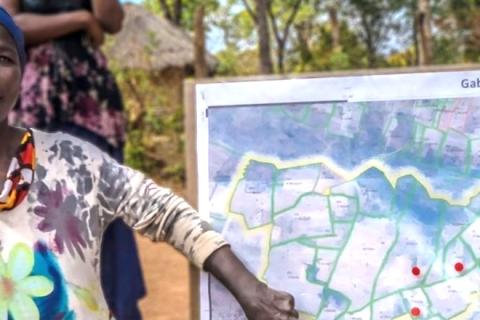O ABSURDO DO ‘MARCO TEMPORAL’ E A VIOLAÇÃO DOS DIREITOS ORIGINÁRIOS
O ‘marco temporal da ocupação’ é uma argumentação insustentável e racista que ignora completamente as perseguições, violências e massacres sofridos por milhares de comunidades indígenas e quilombolas desde o período colonial, trazendo insegurança jurídica e social a estes povos.
Do Mocambo ao Rio dos Pretos
As Indigenous Groups Wait Decades for Land Titles, Companies Are Acquiring Their Territories
The Santa Clara de Uchunya community has lived in a remote section of the Peruvian Amazon for generations. Like many indigenous groups, this community of the Shipibo-Konibo people have traditionally managed and relied on forests for hunting, fishing and natural resources.
But in 2014, someone started cutting down large sections of the community’s ancestral forests.
RETOMADA INDÍGENA ALDEIA KAMAKÃ GRAYRA, NA FUCAM, EM ESMERALDAS, MG: LUTA LEGÍTIMA PELO DIREITO À TERRA. 3ª PARTE.
Há um ano e meio, no dia 1º de janeiro de 2017, dezenas de famílias indígenas, que moravam antes na Região Metropolitana de Belo Horizonte, MG – expulsas de seus territórios e sobrevivendo em diáspora forçada -, apoiadas pela Associação dos Povos Indígenas de Belo Horizonte e Região Metropolitana (APIBHRM), ocuparam parte de uma das três fazendas da FUCAM (Fundação Educacional Caio Martins), Fazenda Santa Tereza, no município de Esmeraldas, RMBH, fazenda de propriedade do Governo de Minas Gerais.
From the Ground Up: Participatory Rights Documentation for Healthy Landscapes
Much of the world’s rural landscapes are technically managed by national governments with limited recognition of, or support for, the rights and management responsibilities of the rural poor who live in these areas. In an era of large-scale land acquisitions for global commodity production, this has led, in some cases, to governments allocating vast tracts of land and resources to companies with limited or no consultation of the people affected.
Formally Recognizing Pastoral Community Land Rights in Ethiopia
For hundreds of years, pastoralists in Ethiopia’s lowlands have relied on strong customary land tenure systems to survive. Historically, legislation has failed to clearly define communal rights to rangelands, and the specific roles and responsibilities for both communities and local government to administer and manage these resources. This legislative deficiency prevented pastoral communities from fully exercising their constitutional rights to land (Ethiopia’s Constitution broadly recognizes pastoral communities’ right to access land and prevents their involuntary displacement).
Na cadeia de violações de direitos, crianças indígenas ocupam o fim da linha (Brasil)
Autor: Ariadne Cantú, Consultor Juridico
Fonte:https://www.conjur.com.br/2017-out-30/mp-debate-criancas-indigenas-ocupa...
A morte silenciosa dos inocentes. Falo de uma morte anunciada em 1500, ano da colonização do Brasil, quando tudo ainda era nudez e ingenuidade.
Áreas protegidas viram moeda de troca do governo com a bancada ruralista (Brasil)
Autor: Jaime Gesisky
As áreas protegidas têm um papel importante do dia a dia das pessoas, embora nem todo mundo se dê conta disso. Ainda.













